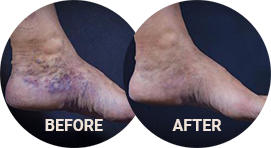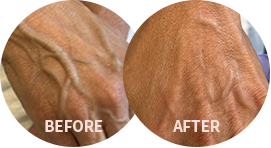Swollen legs are a common condition, and they’re a complaint that vascular surgeon David Naar, MD sees often at Premier Vein Clinic. As a leg swelling specialist, Dr. Naar can help you get to the bottom of your issue and treat many of the causes of peripheral edema, the medical name for the condition.
Many Causes, Two Classes
There are many reasons why your legs might be swelling, but there are two types of swelling that most commonly occur. Fluid retention stems from problems in the circulatory system, the lymphatic system, or the kidneys, and the causes vary widely in severity.
Tissue inflammation is the other class of condition that may give your legs a puffy appearance. Causes for this type of swelling include injuries to the leg like a fracture or sprained ankle, or inflammatory conditions such as bursitis or rheumatoid arthritis.
Fluid Retention
If you’ve noticed that your legs are swollen at the end of a day with lots of standing or sitting, or if you get puffy after a long flight, your swelling might be incidental, spurred on by lack of movement. Your veins return blood to the heart and lungs against gravity, and being farthest away from the pumping action of your heart, they depend on the muscular contractions of movement to assist the upward flow of blood. Varicose veins indicate issues with upward blood flow, and they can cause fluid retention in the legs.

There are, however, plenty of more serious conditions that interfere with the venous systems. Having an obese body mass index adds distance to the blood vessels in your legs, increasing the difficulty of blood movement. Heart issues, such as heart failure and pericarditis may also result in swollen legs. Kidney disease or kidney failure can slow the process of removing fluids from the body, overwhelming the legs and aggravating fluid retention.
Lymphatic disease causes leg swelling due to inefficient drainage of fluid through the lymph system. It’s common in cancer patients after treatment, but others can experience these conditions too.
Medications used for high blood pressure and diabetes can cause edema in your legs, as can over-the-counter pain relievers, including naproxen and ibuprofen. The body changes that occur during pregnancy also cause leg swelling.
Deep vein thrombosis and thrombophlebitis can produce dangerous blood clots as well as swelling, so the complications of these conditions can be potentially fatal if left untreated.
Inflammation
Leg tissue and joints may show signs of swelling due to inflammation, either as part of a disease or in reaction to a leg injury. Inflammation is part of your body’s natural healing response, so you can expect swelling whenever there’s damage present in your legs, whether from acute trauma or degenerative disease, such as forms of arthritis. Leg swelling is temporary as you heal from injury, but it may be an ongoing concern when the underlying condition can’t be cured.
When you don’t know the origin of your leg swelling, booking an appointment with Dr. Naar and the team is prudent to rule out some of the more serious health issues.
Contact Premier Vein Clinic by phone or online to schedule your consultation.





